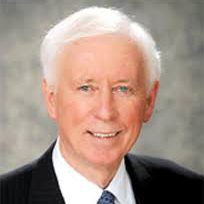Report on “Ethical Guidelines and Practices for U.S. Military Medical Professionals”
U.S. military health care professionals serve in a variety of settings, more diverse than is typically found in the civilian environment. In all settings, military and civilian, health care professionals face innumerable conflicts in the practice of their vocation. At times, health care professionals who practice in these settings may face ethical challenges in honoring the ethical standards of their profession and obeying military orders or policies. Tensions can arise if the demands of the mission or line command are at odds or in tension with the duties to attend to the health of those needing care.
In particular, military personnel serving in combat zones might be confronted with numerous ethical and moral challenges. Most of these can be resolved with effective communication, training, leadership, clear rules of engagement, and unit cohesion and support. However, the very act of experiencing, witnessing, or participating in troubling events can undermine a Service member’s humanity. An act of serious transgression that leads to serious inner conflict because the experience is at odds with core ethical and moral beliefs is called moral injury, which can be long lasting and painful.
In January 29, 2013 the Acting Under Secretary of Defense for Personnel and Readiness requested the Defense Health Board (DHB) review the unique challenges faced by military medical professionals in their dual-hatted positions as a military officer and a medical provider. Two questions were asked:
- How can military medical professionals most appropriately balance their obligations to their patients against their obligations as military officers to help commanders maintain military readiness?
- How much latitude should military medical professionals be given to refuse participation in medical procedures or request excusal from military operations with which they have ethical reservations or disagreement?
The DHB tasked its Medical Ethics Subcommittee to conduct its review of military medical professional practice policies and guidelines. The Subcommittee reviewed current civilian and military health care medical professional practice policies and guidelines as well as medical ethics, education and training in the Department of Defense (DoD) and in civilian institutions. Subcommittee members also held panel discussions with subject matter experts and DoD personnel, including Active Duty, National Guard, Reserve, and retired military health care medical professionals and line officers as well as healthcare professionals in civilian institutions. Included among the civilian organizations were the World Medical Association, American Medical Association, American Nurses Association, American Psychiatric Association and the American Psychological Association.
February 11, 2015 the DHB unanimously approved the report (attachment with sixteen recommendations), “Ethical Guidelines and Practices for U.S. Military Medical Professionals”. It is an effort that is notable for being well done. It is characterized by thoroughness and a sensitivity to the issues described. The Subcommittee developed its own principles to guide its review and deliberation:
Context: Military health care professionals face unique challenges resulting from their dual role as medical providers and military personnel. Throughout their careers, these professionals may be required to plan and participate in health care support for combat operations, humanitarian assistance, disaster response and other activities, which may be conducted in austere environments with limited resources. As health care providers, military medical professionals have ethical responsibilities to their patients, which arise from a variety of legal, moral, and professional codes as well as personal moral and religious beliefs of both the caregiver and the patient. However, military health care professionals must weigh and prioritize these ethical responsibilities with their role as military officers.
Overarching Principle: DoD has a duty to provide military health care professionals with the resources, tools, and knowledge to determine the best course of action when confronted with ethical dilemmas and a practice environment in which they feel safe in raising ethical concerns and confident they will receive support in seeking a fair and just resolution to those concerns. In addition, DoD also has an obligation to assist professionals in developing the resiliency to cope with and recover from the moral injury resulting from confronting intractable ethical dilemmas.
The Guiding Principles provided herein guided the DHB and the Medical Ethics Subcommittee in its review of the dual loyalties of military health care professionals,
I. These must take into consideration:
a. The spectrum of health care professional ethical codes, laws and licensing requirements;
b. Military professional ethics and codes;
c. Medical education and continuing medical education both within and outside of DoD;
d. The spectrum of experiences of both civilian and military health care professionals;
e. The need for military health care professionals to explore and address their own and their patient’s religious beliefs, ethics, and medical preferences; and
f. Recommendations of those within and outside of DoD.
II. Provide guidance regarding how to best educate and train military health care professionals to recognize and determine the best course of action when ethical dilemmas arise.
III. Acknowledge the moral injury that may occur as a result of encountering an ethical dilemma and incorporate practices that enhance resiliency and assist professionals in coping with and recovering from these injuries.
IV. Provide guidance to ensure a support infrastructure and environment is established and maintained to provide military health care professionals a safe avenue to raise ethical concerns and seek timely assistance in determining the best courses of action.
Attachment with 16 recommendations
Cecil B. Wilson, MD, MACP
Past President World Medical Association
WMA Past Presidents and Chairs Network (PPCN)

